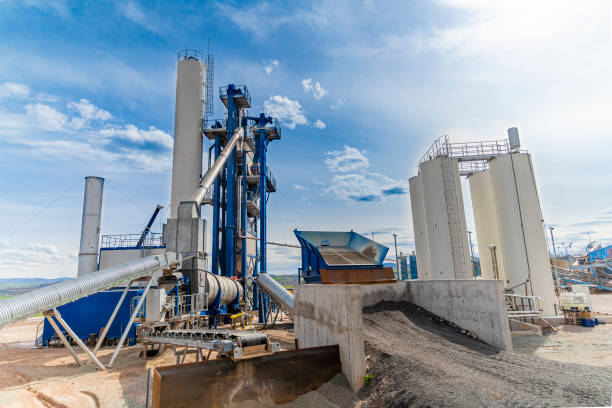
Ancient Origins
Babylonia and Mesopotamia (c. 625 BC): Asphalt, also known as bitumen, has been used for thousands of years. The ancient Babylonians and Mesopotamians used it as a mortar for building structures and as a waterproofing agent for baths, reservoirs, and ships.
Egypt (c. 2600 BC): The Egyptians used asphalt in the construction of the pyramids and for embalming mummies.
Classical Antiquity
Greece and Rome: The Greeks and Romans also used asphalt for various purposes, including road construction. Roman roads, some of which are still in existence, often included layers of asphalt to create a durable, weather-resistant surface.
Middle Ages
Europe: During the Middle Ages, knowledge of asphalt's applications diminished in Europe, but it continued to be used in the Middle East.
18th Century
Reintroduction in Europe: The modern era of asphalt use began in the early 18th century when it was rediscovered in Europe. In 1712, Swiss scientist Eirini d'Eyrinis discovered the natural asphalt deposits at Val-de-Travers in Switzerland, which were later used to pave roads.
19th Century
First Asphalt Roads (1824): The first recorded asphalt road in modern history was constructed in Paris on the Champs-Élysées.
United States (1870): Edmund J. DeSmedt, a Belgian chemist, laid the first true asphalt pavement in the U.S. in Newark, New Jersey, using natural asphalt from Trinidad Lake.
Expansion: Asphalt roads became more common in the late 19th century with the expansion of the automobile industry, necessitating better road surfaces.
20th Century
Technological Advancements: The development of oil refining techniques led to the production of petroleum-based asphalt, which became the standard due to its durability and cost-effectiveness.
Infrastructure Boom: The 20th century saw a massive expansion of asphalt roads and highways, particularly in the United States with the construction of the Interstate Highway System beginning in the 1950s.
Recycling: The concept of recycling asphalt pavement was introduced, which helped in reducing the environmental impact and costs associated with road construction.
21st Century
Sustainability: Modern advancements focus on sustainability, including the development of warm-mix asphalt (which requires less energy to produce), the use of recycled materials, and innovations in paving technologies that improve road longevity and reduce maintenance costs.
Smart Roads: There is ongoing research into "smart" road technologies that integrate sensors and renewable energy solutions to improve transportation infrastructure.
Key Milestones in Asphalt History
1870: First asphalt pavement in the U.S. by Edmund J. DeSmedt.
1956: U.S. Interstate Highway System construction begins.
1990s: Increased focus on recycling and environmental sustainability in asphalt production and paving.
2000s: Development of warm-mix asphalt and other sustainable practices.
Asphalt has played a critical role in the development of modern infrastructure, and its evolution reflects advances in technology and changes in societal needs. From ancient waterproofing techniques to smart roads of the future, asphalt continues to be an essential material in construction and transportation.
Contact us today for all your asphalt needs







